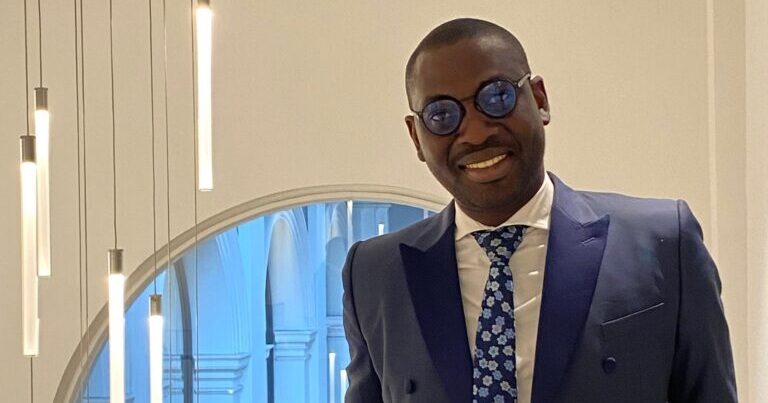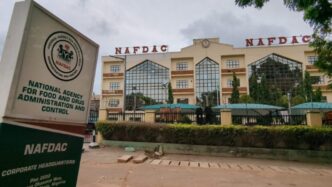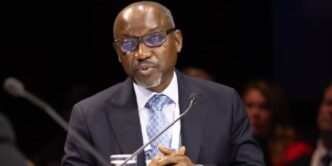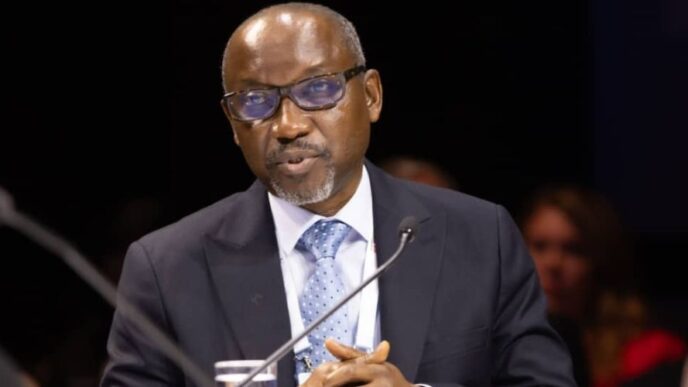At 34, Adedoyin Adeleke could have chosen a comfortable life in Europe. Instead, the Nigerian scientist packed his bags, returned to Nigeria, and began working on projects related to waste, energy, and youth. Now 36, he‚Äôs the first African selected by the UN to help shape the world’s roadmap for sustainable development.
When Dr Adedoyin Adeleke handed in his PhD in energy studies at the Polytechnic University of Milan and quietly slipped back into Nigeria in November 2023, many saw it as a senseless gamble.
Nigeria’s “japa” wave was in full swing, as young graduates streamed out—some with visas in hand, others taking perilous journeys across the Mediterranean, chasing opportunity.
Adeleke‚Äôs decision to return home thus puzzled many. Why trade stability in Europe for uncertainty at home? Then, at 34, he became an overnight sensation, with his homecoming instantly going viral. Google “35-year-old PhD holder returns from Italy,” and his name tops the results as an insurgency against the exodus.
“It was my passion pulling me back, which is to propel green growth in Africa,” Adekele recalled.
Few could have predicted that less than two years later, his wager would pay dividends. On September 19, the UN Secretary-General Ant√≥nio Guterres appointed him co-chair of the Independent Group of Scientists (IGS).¬Ý
The panel is responsible for producing the Global Sustainable Development Report (GSDR) of 2027—the last before the 2030 SDG deadline. And for the first time in history, the role was filled by an African.
Adeleke, Executive Director of the Green Growth Africa (GGA), shares the role with Greece’s Phoebe Koundouri.¬Ý
“We will deliver evidence-based insights to accelerate transformative action,” the green prodigal posted on LinkedIn.
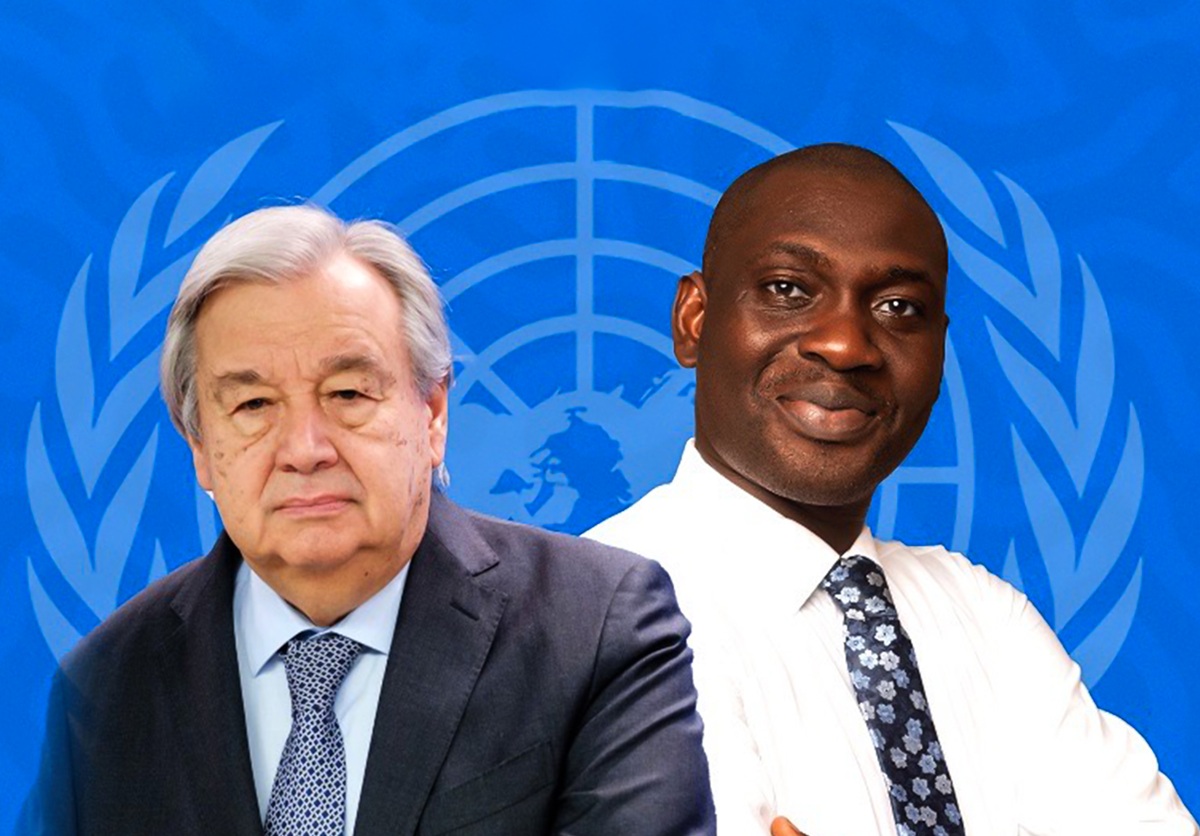
As not just the first Nigerian, but the first African to co-lead this scientific ensemble of fifteen, he brings to the role both the urgency of environmental crisis and the possibilities latent in a continent long seen as passive in global climate discourse.
Born in Osogbo, Nigeria, Adeleke’s educational journey began with a focus on mechanical engineering at home. Then it transitioned into a multidisciplinary blend of law, policy, and renewable energy, culminating in doctoral research in Italy.
In Europe, he observed how governments integrated climate, energy, and economic growth in a way that seemed seamless. Africa, he noticed, often had resources but lacked the glue—institutions and policies—to connect the dots.
So he returned. And his story spread quickly. Local media called him the “35-year-old PhD holder who came back home.” But Adeleke wasn’t chasing headlines. He had already founded GGA in 2017, a UNEP-accredited nonprofit, and wanted to scale its work on the continent.
“My philosophy is simple,” he said. “Green growth is not just about the environment. It’s about people and prosperity too. If climate solutions don’t create jobs or improve lives, they won’t work in Africa.”
That philosophy has taken shape in striking ways. In Ibadan, his organisation built Nigeria‚Äôs first modern green building out of discarded plastic bottles. Solar panels power it, and it operates entirely off the grid.¬Ý
In rural Kenya, Green Growth Africa worked with students to turn sugarcane waste into biodegradable sanitary pads. The project addressed a waste problem, kept girls in school, and sparked the creation of small businesses for local women.
“Every solution has to answer multiple needs,” Adeleke explained. “In Africa, people worry first about food, jobs, and dignity. If we design climate projects that also fix these issues, then they succeed.”
Even tree planting, he argued, needs context. “You can’t ask farmers to use their land for trees instead of food. That’s not fair. But you can encourage households to plant trees around their compounds. It’s about fitting solutions into real lives.”
The Global Sustainable Development Report is no ordinary UN paper. Published every four years, it compiles science and policy recommendations that inform national strategies and donor priorities. Adeleke will co-chair the 2027 edition with Professor Koundouri of Greece, alongside 15 scientists from around the world.
For Africa, his presence is a milestone. The continent is often an afterthought in global debates—pitied as a victim of climate change yet rarely trusted to lead solutions. Adeleke wants to change that.
“Africa should not be seen as helpless,” he affirmed. “Yes, we suffer the impacts, but we also have ideas and resources that can drive the transition.”
Those resources he‚Äôd noted are considerable. Africa holds 30‚Äì40% of the world‚Äôs critical minerals, including cobalt and manganese, which are essential for electric vehicles and batteries.¬Ý
However, history shows the danger: Africa produces 70% of the world’s cocoa yet earns less than 3% of chocolate revenues. Adeleke warns against repeating that pattern with minerals.
“We must not export raw materials only to buy back finished products at ten times the price,” he said firmly. “Policy and law should protect us. Governments must be serious, and investors should build industries here, not abroad.”
Africa accounts for just 3% of global emissions but bears a significant brunt of climate shocks, including floods in Libya, droughts in the Horn, and cyclones in Mozambique.¬Ý
Meanwhile, the continent’s population is set to double by 2050. Its cities are swelling; its demand for energy, housing, and jobs is soaring. Without a green transition that creates industries, Africa could lock itself into a high-carbon, low-income trap.
Yet, Adeleke sees opportunity in this flux. “Those who grew rich by burning carbon may struggle to adapt,” he noted. “But those who never had heavy industries? They can leap straight into a clean economy. That’s Africa’s chance.”
With the global economy shifting towards decarbonisation, Africa, starting from a relatively low industrial base, has the opportunity to leapfrog. Solar farms, waste-to-wealth industries, responsible mining, and green construction are not luxuries but pathways to competitiveness.
The Global Sustainable Development Report of 2027 will be Adeleke’s biggest platform yet. It will influence how governments and institutions invest in sustainability. More importantly, it can show that climate action is not a Western script to be copied but a shared challenge with local solutions.
Seth Onyango, Bird Story Agency


 Trending
Trending 

